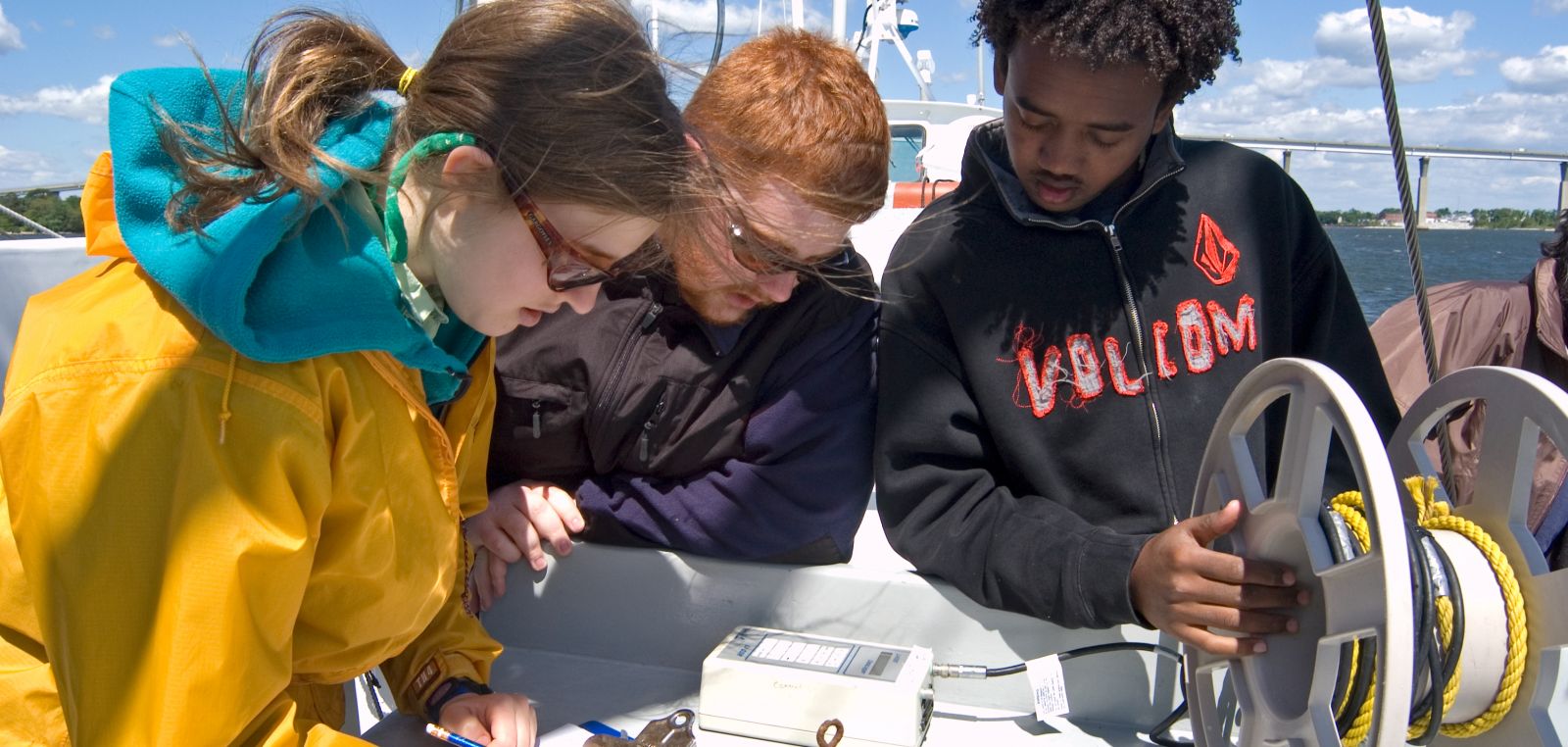Knauss legislative fellowships in Congress help build careers — and they're fun and educational. See our video and fact sheet for details.
Our Education Programs

"The object is to teach the student to see the land, to understand
what he sees, and enjoy what he understands."
– Aldo Leopold, author and educator,
The Role of Wildlife in a Liberal Education
Maryland Sea Grant works to increase marine science literacy across the full spectrum of education, from children in elementary school to Ph.D. candidates.
We are committed to helping inform and equip citizens to take on the long-term challenges of protecting the environmental and economic sustainability of Maryland’s coastal resources. We want Marylanders to be able to continue to enjoy the Chesapeake Bay for generations to come.
Environmental science has increasingly become a focus of science education in Maryland. Sea Grant’s staff members in education have supported this trend by sharing the latest research results and methods in environmental science with school teachers and students.
Educational Programs and Resources
- K–12 Instructional Strategies: These plans cover diverse topics in marine science for K–12 school teachers and students. Check out our lessons on oysters, biofilms, and more.
- K–12 Aquaculture Education: A program in Maryland schools in which students learn about and practice aquaculture of commercially important species in tanks on school premises.
- 6–12 American Chestnut Education: An inter-county collaborative in Maryland that focuses on the study of American chestnut history and the development of groves on school grounds to promote project-based science and a better understanding of chestnut blight. Innovative instructional strategies online are designed to highlight a hybrid 5e model and alignment with NGSS and CCSS.
- Puerto Rico Undergraduate Education Initiative: A multi-institution collaboration to provide opportunities for Hispanic undergraduate college students to conduct marine science in the island’s coastal lagoons.
- Research Experiences for Undergraduates: Each summer the REU program, funded by the National Science Foundation, places a group of promising undergraduate students from across the country in research labs on the Chesapeake Bay. Each student works with a scientist mentor to design and conduct his or her own research project.
- Graduate Fellowships: Our research fellows work in Maryland laboratories; our policy fellows work in the corridors of Congress and federal agencies in Washington, D.C. We also support fellowships in coastal management, fisheries population dynamics, and marine resource economics.
Maryland Sea Grant Education Personnel


Professional Development and Aquaculture Education Coordinator
Email: cflight@mdsg.umd.edu




